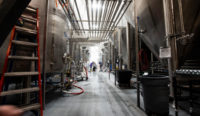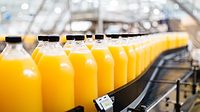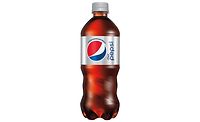Contract manufacturers enable beverage innovation
Co-packers see rise in healthy drink requests
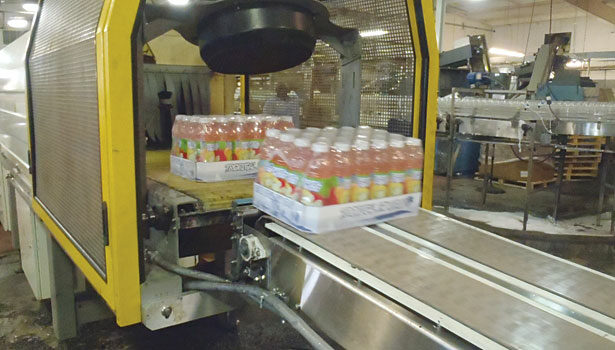
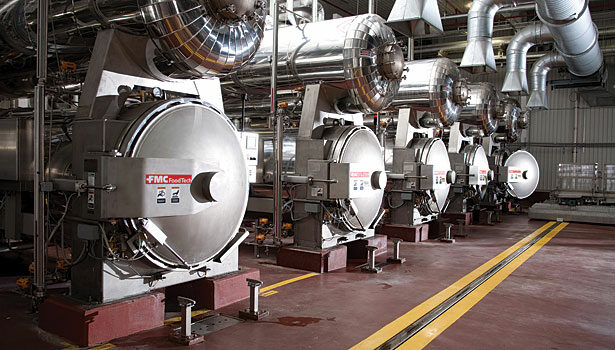
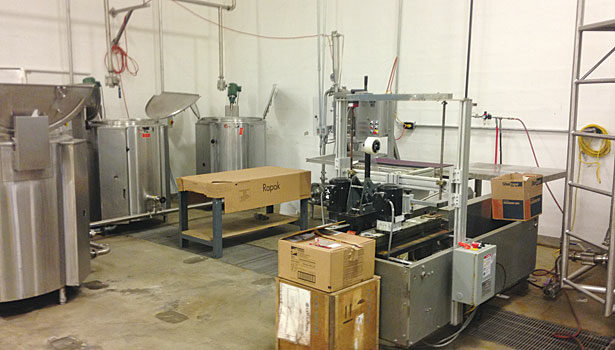
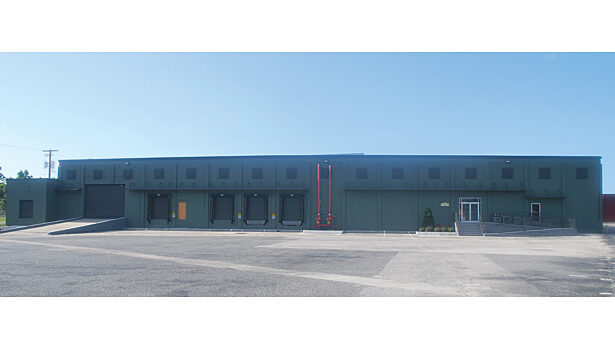
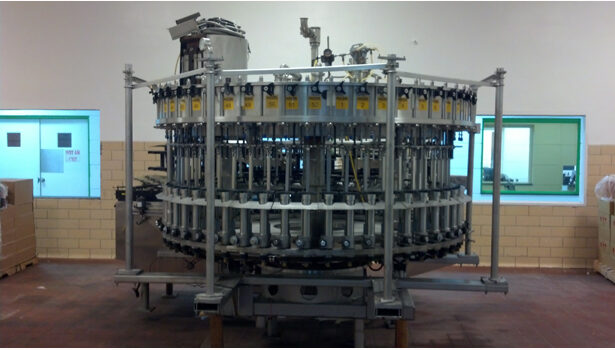
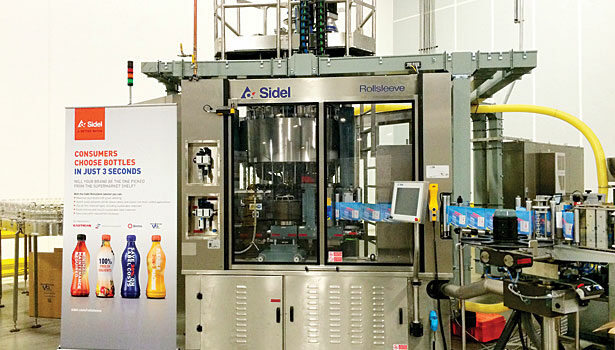






When Geoff Soares, chief executive officer of Summit Beverage Group, Marion, Va., purchased the company back in spring 2013, he knew little about the beverage business, he says. Soares previously worked in the aerospace and oil-refining industries, so his expertise focused on manufacturing. After acquiring a beverage contract manufacturing company that had failed twice in its history, he realized that the company’s focus on sales and marketing was not benefiting its business; instead, the focus should be on the manufacturing side of the market. In this way, he positioned the company to partner with beverage brands to handle their manufacturing while the brands handled the sales and marketing.
“I’m not a beverage guy in that I know how to compete and convince somebody that my drink is better than [competing brands], so let them do what they do best, and let me do what I do best,” Soares says of the relationship between contract manufacturers and their clients. “These [beverage brands] need to find somebody to [manufacture] their products because they don’t have the capital to invest in manufacturing facilities, and what capital they have, they have to invest in distribution and brand awareness.”
Under business models like this, beverage brands can reduce their start-up costs for manufacturing and expand their chances of surviving in the market, points out Darold Sauber, director of business development for Dairy Farmers of America, Kansas City, Mo. “Research shows that only 3 percent of all new brands make it,” he says. “Plants are a large investment, and if a business doesn’t spend the money up front, it’s a good idea to let the contract manufacturer do the work.”
For example, Dairy Farmers of America runs five contract manufacturing facilities where it retorts low-acid beverages in glass and aluminum cans, Sauber says.
Beyond manufacturing the actual beverage, contract manufacturers and contract packagers, or co-packers, can offer a variety of other services to make it easier to execute all stages of beverage operations, says Sheila Heath, director of marketing at Crown Speciality Packaging North America, a business unit of Philadelphia-based Crown Holdings Inc. “Co-packers … give companies greater flexibility when they are looking to secure product extensions or to increase their capacity at peak times without having to make large investments in equipment or other capital expenses,” she says. “Co-packers [also] can function as an extension of your business and can take on additional responsibilities. They can transport your goods to other locations and work with other vendors to consolidate packaging efforts and streamline processes. This way, you only have to deal with one partner while several others work for you behind the scenes.”
Keep moving forward
One of the most important services a contract manufacturer or co-packer can offer is the ability to be innovative and keep up with the latest beverage and consumer trends.
“Contract packagers are extremely important to the industry for innovation and versatility,” says Brian Dworkin, president of Castle Co-Packers LLC, Latrobe, Pa. “I believe without contract packagers, innovation would come to a crawl.”
Co-packers have the experience to help create new beverages, Dairy Farmers of America’s Sauber says. Specifically, Dairy Farmers of America hosts an Innovation Center where clients can work with food scientists to develop a beverage concept and then use its pilot plant to test the formulation.
“The Innovation Center works in a variety of ways,” Sauber explains. “A customer can request a protein shake, giving us only protein and volume requirements. We take that information and formulate a drink, collaborating with them on details to get the flavor they desire. If the business owner has a dream, we will take the time to work with them to make it a reality.
“If a customer comes in with their product or beverage already formulated, we will co-pack it for them,” he continues. “We also can fix a formula and add stabilizers, if necessary.”
In addition, contract manufacturers have the capital to invest in the necessary equipment for new beverages and the ability to offer trial runs to test prototypes, explains Bill Foley, chief executive officer of Southeast Bottling & Beverage, Dade City, Fla. Approximately 90 percent of the start-up companies that Southeast Bottling & Beverage works with take advantage of the co-packer’s trial-run services to produce 10,000-30,000 bottles to test beverage innovations, he says.
The innovation angle also was a guiding light as Castle Co-Packers designed its new plant, Dworkin says. “We have been building our new plant for about two years now and been racking our brains to make sure we are as versatile as possible,” he says. “We have tried anticipating future needs and wants from customers. … We have designed our product lines so they can be easily adapted to new technology and new, creative ideas.”
When completed at the end of the year, Castle Co-Packers’ new facility will include a new tunnel pasteurizer for accommodating carbonated beverages, a hot-fill bag-in-box line for customers that are interested in breaking into foodservice accounts, a small hot-fill glass line for specialty bottles and caps, two tea-brewing systems that enable the co-packer to brew 100,000 gallons of tea each day, an additional 30,000 square feet of refrigeration space for beverages that require refrigeration, and refrigerated batching tanks for temperature-sensitive products, Dworkin says.
Summit Beverage Group also planned ahead for beverage innovation when it upgraded to a cold-fill line this year, Soares says. The company had received a request for 100,000 cases of a cold-fill product in a lightweight bottle and then invested in specialty equipment for handling and cold-filling the lightweight bottles, he explains.
“In manufacturing, you limit yourself unless you have the various equipment to do the different types of beverages, which means different types of lines to increase the flexibility … so more people can make products in your plant,” he says. To add more flexibility, the company pre-invested in a cold filler that also can handle carbonation. Next year, the company plans to buy a refrigeration section for its cold-fill line to fully enable carbonated beverage production, allowing the co-packer to accommodate requests in the growing sparkling water segment, he says.
Southeast Bottling & Beverage has received a number of requests for products produced in a good manufacturing practices (GMP) environment. Because GMP certification can be costly for a beverage-maker to implement and maintain, Southeast Bottling & Beverage invested in a 76,000-square-foot current good manufacturing practices (cGMP) facility, which opened earlier this year, to accommodate clients with this type of request. It also hopes to achieve certification for cGMP dietary supplement rule 21 code of federal regulations (CFR), part 111, this year.
Brooklyn Bottling Co. also understands the importance of having a diverse portfolio of services. The Milton, N.Y.-based company offers services in brewing teas; hot- and cold-filling beverages into cans, glass bottles and PET bottles; as well as the ability to do in-line blow molding for cold-fill items, says President and Chief Executive Officer Eric Miller.
Knowing their limits
With many innovation opportunities popping up in the marketplace, contract manufacturers and co-packers need to carefully consider which innovations are worth investing in, Summit Beverage Group’s Soares cautions.
For example, Castle Co-Packers’ Dworkin says the company has received many requests for fresh juices, probiotic beverages and kombucha beverages that require high-pressure processing (HPP). However, the volume for these types of beverages is not yet high enough for a co-packer to be able to produce these beverages and still make a profit, he says. Dworkin predicts that smaller co-packers specializing in HPP for fresh juices will emerge in the market, but he also notes that the relatively low volume in these beverage segments coupled with laws and regulations could make it difficult for these companies to stay afloat.
Although there are limits, innovation in general supports the contract manufacturing and co-packing business, Summit Beverage Group’s Soares says. Small, entrepreneurial companies tend to be the most interested in innovating and creating products that fit into today’s healthy beverage trends, he points out. These companies also tend to have limited capital for manufacturing and then turn to co-packers for their production needs, he explains.
A package deal
Co-packers also play a role in designing and producing packaging innovations. “As brands look for help to maximize the impact of their products with … packaging, suppliers like Crown are increasingly asked to play a more prominent role in bringing their enhanced product packaging to market,” Crown Speciality Packaging North America’s Heath says.
Castle Co-Packers’ Dworkin says his company has received multiple requests related to labeling to help products stand out on the shelf. “It costs a lot of money to get a proprietary bottle made, so the easier and cheaper route is to get creative with labeling,” he says.
More specifically, Verst Group Logistics is seeing a surge in requests for decorating wine and spirits bottles with shrink-sleeve labels, says Will Schretzman, vice president of packaging for the Walton, Ky.-based company. This is because specialty effects like tactile inks and coatings and foil stamping that originally were only available for pressure-sensitive labels now are available on shrink-sleeve labels as well, he says.
Beyond these options, the company is working to give beverage brands a jumping-off point for further innovation by serving as a test site for the Sidel Rollsleeve rotary labeler for shrink-sleeve labels and a high-elasticity stretch-sleeve labeler. This allows companies to try the technology before deciding whether or not to buy it themselves, Schretzman says.
Considering all of the product and packaging innovations emerging on the market, the future is bright for contract manufacturers and co-packers, Crown Speciality Packaging North America’s Heath says. “Brands in this sector are likely to keep experimenting with different products and different packaging, and they will need the flexibility, innovation and efficiency savings that co-packers can afford them,” she explains. “In addition, as companies expand beyond their local markets, the need for a partner that can work as an extension of theirbusiness is crucial for efficiency and speed to market.”
Related: 5 tips to maximize success with a co-packing partner
Looking for a reprint of this article?
From high-res PDFs to custom plaques, order your copy today!




